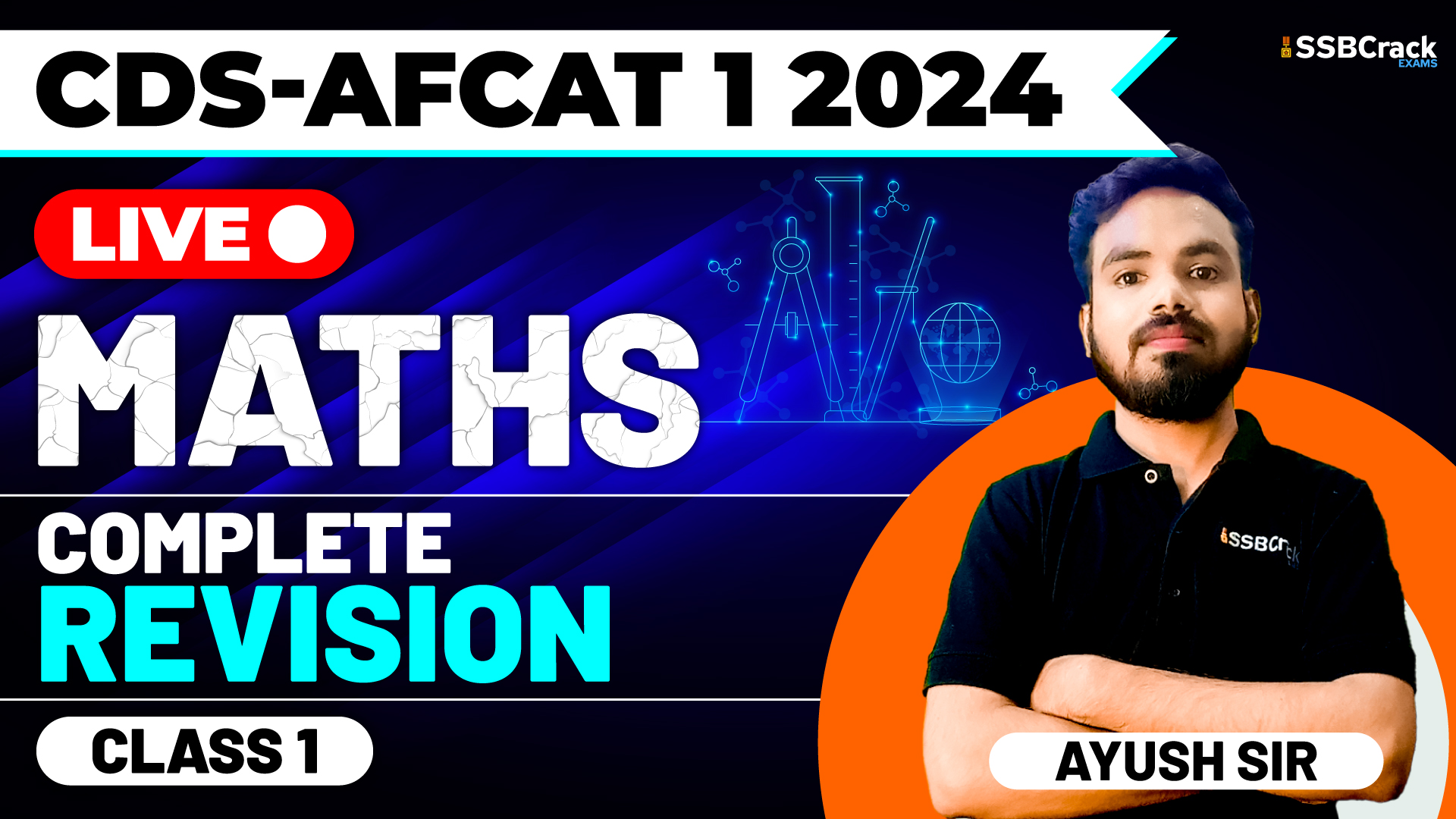In the final stretch of AFCAT-CDS 1 2024 Exam preparation, the Revision Class on Sets and Operations emerged as a crucial milestone. This live session delved into the intricacies of set theory, revisiting fundamental concepts, operations, and identities. In this blog, we’ll unravel the key insights from the revision class, highlighting the critical aspects of sets and operations through a variety of questions, examples, and important identities with their solutions.
Revisiting Foundational Concepts: The revision class began with a comprehensive review of foundational concepts, ensuring that participants had a solid grasp on the essentials.
- Types of Sets: The instructor revisited the different types of sets, from finite to infinite, equal to equivalent sets. Participants were reminded of the versatility of sets and the various ways they can be classified, setting the stage for more advanced discussions.
- Set Notations: Set notations were revisited, emphasizing the importance of clear and precise notation in conveying mathematical ideas effectively. A solid understanding of set notations is crucial for accurate representation and manipulation of sets.
Operations on Sets: As the revision progressed, attention shifted to the operations that can be performed on sets, reinforcing participants’ understanding of set manipulation.
- Union of Sets: The Union of Sets, a fundamental operation, was revisited. Practical examples were presented to illustrate how the union brings together the elements of two sets, providing a comprehensive view of the combined elements.
- Intersection of Sets: The Intersection of Sets, a powerful operation that isolates common elements, was emphasized. Participants were reminded of scenarios where the intersection operation becomes particularly valuable, offering insights into the relationships between sets.
- Complement of a Set: The concept of the Complement of a Set, which identifies elements not belonging to a particular set, was reinforced. Through practical examples, participants were reminded of how the complement operation aids in set analysis.
Critical Identities and Null Sets: The revision class delved into the significance of identity sets and the concept of null sets, reinforcing their role in set theory.
- Identity Sets: Identity sets, those that yield the same set when combined with another set through union or intersection, were revisited. Participants were reminded of the properties of identity sets and their influence on set operations.
- Null Set: The Null Set, or the empty set, was highlighted once again. Participants revisited the unique characteristics of the null set, understanding how it influences set operations and serves as a fundamental element in set theory.
Practical Applications and Problem-Solving Strategies: Theoretical discussions were seamlessly complemented by practical examples, ensuring that participants were equipped with problem-solving strategies applicable to a variety of scenarios.
- Problem-Solving Strategies: The revision class went beyond the basics, equipping participants with problem-solving strategies applicable to diverse scenarios. Emphasis was placed on recognizing patterns, identifying key set properties, and adopting a systematic approach to problem-solving.
- Real-world Scenarios: Participants were guided through practical examples that mirrored real-world problem-solving situations. From data analysis to logical reasoning, sets were showcased as invaluable tools for modeling and analyzing a diverse range of phenomena.
Final Preparation Strategies: As candidates approach the AFCAT-CDS 1 2024 Exam, the revision class served as a valuable opportunity to refine their preparation strategies.
- Consolidating Knowledge: The revision class provided a platform for consolidating knowledge acquired throughout the preparation journey. Participants were encouraged to revisit their notes, clarify doubts, and ensure a solid understanding of all concepts related to sets and operations.
- Focused Practice: Focused practice on critical identities and problem-solving techniques was emphasized. Participants were advised to prioritize areas where they felt less confident and engage in targeted practice to enhance their proficiency.
- Time Management: Efficient time management strategies were reinforced. Participants were reminded of the importance of allocating time wisely during the exam, ensuring that each question receives the attention it deserves while staying within the time constraints.
Conclusion: The AFCAT-CDS 1 2024 Exam Revision Class on Sets and Operations wasn’t just a walk down memory lane; it was a strategic journey through the essentials, ensuring that participants were well-prepared for the challenges that lay ahead. By revisiting foundational concepts, operations, identities, and problem-solving strategies, participants left the revision class armed with a comprehensive toolkit.
As candidates embark on the final leg of their preparation journey, the insights gained from this revision class will serve as a valuable asset. Armed with a thorough understanding of sets and operations, participants are now better equipped to navigate the set-theoretic challenges of the AFCAT-CDS 1 2024 Exam with confidence and precision. The revision class, once perceived as a final review, has become a pivotal stepping stone towards success in the upcoming exam.







